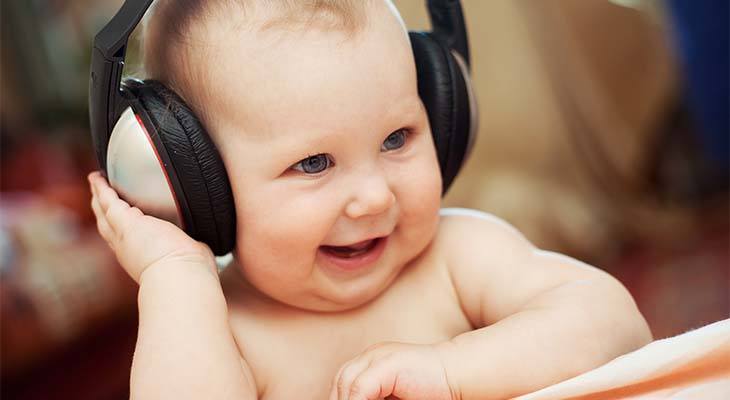Read the original post Language Development in Infants and Baby Speech Development on BabyDotDot.
Your child wouldn’t suddenly start spouting sentences on the get-go. It will take months and months before that could happen. After all, baby language development doesn’t happen overnight.
Hearing your baby’s first words is definitely something all parents would love to hear.
But when do babies start talking?
As someone new to parenting, it can definitely be hard to wait. But that’s just what you have to do.
But that doesn’t mean that your baby wouldn’t start to communicate with earlier!
After reading this article, you will know:
- The difference between speech and language
- How baby language development progresses
- How to help your baby learn to talk
- Why speech delays happen
- And many more
How to Read this Article
If you are a new parent:
- Learn the stages of baby language development
- Discover when your baby might say his first word
If you are an experienced parent:
- Refresh your memory on your baby’s language milestones
- Know what to do if your baby has suspected speech delays
If you are a friend of someone who has a baby:
- Show support by learning more about her baby’s speech and language
- Share what you know to help your friend with her journey
If you just want to gather information about premature baby development:
- Read on to obtain facts about baby language development, speech problems, and the importance of speech therapy, and share with everyone you know!
If you want to learn more about your baby’s developmental milestones, head on over to the articles below:
Discover more about baby language development and how you can help!
In this article, you will learn how speech development and language development in children differ. Yes, they’re not the same!
So, on this page, we’ll explore:
- Speech development vs. Language development
- Language development in infants
- When do babies talk?
- Stages of language development
- 2 year old language development
- How to teach baby to talk?
- Delayed speech in children
- Speech disorder vs. Language disorder
- What to do if you suspect a speech or language disorder?
- How are speech and language delays diagnosed?
Many types of cognitive development might sound and look the same but have vastly different functions.
The rate at which your baby will learn his language skills will not be the same as his speech milestones.
To help you become better prepared to care for your child, knowing if his development is coming at a healthy pace is a good idea.
You can even use mobile apps, toys, and different tools to help you and your baby in your journey!
If you want to learn more about the different applications and toys you can use to further the development of your baby, head on over to these articles:
Speech Development vs. Language Development

Like what was mentioned above, speech and language are not the same.
If you want to understand your baby’s language journey better, you will need to know the difference between the two.
It will make things easier, guaranteed.
You must understand that your baby will be able to communicate without speech. He can also respond to you just with his hearing skills.
That’s because language isn’t contained only in speech. And not all speech is language.
Voice vs. Speech vs. Language
The voice is the actual sound you make when air from your lungs passes through your larynx and is uttered through the mouth.
The speech is the actual talking and produces recognizable sounds.
The language is a sound with a set of rules that relay ideas that people collectively understand. It can be expressed through speech, writing, singing, and even simple gestures.
Language Development in Infants
Now that you know the difference between speech and language, you can fully appreciate the fact that they don’t develop at the same time, in the same way, for the same reason.
Language development in early childhood starts as soon as the first few weeks of your baby. And it will grow as he grows older and gains more experience.
Speech development follows closely behind. As your child further understands the languages surrounding him, he will try to imitate you closely and try to make the sounds you do.
Did you know that science says baby talk is intelligible? Check out this video:
How Do Speech and Language Develop?
You might know this already, but children are highly impressionable.
That’s because the first 3 years of their lives are when their brain is still developing and maturing. This is also a critical period since they will learn and absorb a lot during this age.
Speech and language are both cognitive skills that are important for them to acquire and master.
If they don’t learn the basics of both speech and language during this stage in their lives, it will be a lot harder to learn in the coming years.
So, make sure you encourage your kid to communicate with you at all times!
Tips: Being patient is the key! And, always speak to them at their eye level. It will be less intimidating for them.
If you want to learn more about your child’s cognitive development as well as other early physical developments, head on over to this article – Baby Eye Development.
When Do Babies Talk?
Before truly speaking, your baby will already have an understanding of the language that you speak and do.
So a question to ask is: when do babies start babbling?
There is no definite period, but by 7 to 9 months, your baby will seem like he’s attempting to have a conversation with you already.
In time, he will create noises that try to mimic your words. Your child might even create recognizable sounds and intonations.
But when do babies say their actual first word?
The average age at which kids utter a bona fide first word is 12 months… – Melody Warnick, Parenting
Toddlers at the age of 2 might even string simple sentences together.
Be that as it may, just remember that all these are average statistics. Your child might develop at a faster or slower pace, and that’s completely normal.
Stages of Language Development

Language acquisition is something that babies develop earlier than other skills.
This is the skill that allows us to grasp and understand any form of language. After all, it is inherent in every one of us to try to communicate with others.
Language comprehension is our ability to process both written and verbal words and speech pattern that make up a particular language.
This is the skill that’s essential in our day to day lives.
But to better understand the stages of language development, you must also know the different speech milestones your child will undergo.
They work hand-in-hand, after all.
Newborn to One Month
Like what was said above, communicating is an inherent trait everyone has. It is the same for newborns.
A soon as your baby is born, he will try to express himself clearly. But it will first manifest in nonverbal forms.
Your baby grimaces, cries, and squirms to express a range of emotions and physical needs… – WebMD
In time, you will learn to differentiate his cries and know what exactly it is he wants.
Be it a bottle of milk, a diaper change, or just a cuddle.
Don’t be alarmed that your baby cries a lot during this time. Wailing is actually an excellent way to exercise his larynx to produce sounds.
What you can do as a parent is to say soothing and comforting things. This will reassure your baby that you are indeed listening to him and will give the confidence to keep telling you what he wants.
2 to 5 Months
During this age, your little one will start to coo and make vowel sounds.
These little noises are another form of exercise for your child’s larynx and will help him gain more control of his voice.
During this stage, your baby will also learn how to control tone and volume which is essential for when he talks in the future.
To help him out, you can try speaking in a high pitch since studies show that babies like to imitate those sounds better.
7 to 9 Months
At 7 to 9 months, your baby might hit a significant milestone!
By this time, he will be trying to produce consonant sounds. This is a big step since it will use both his tongue and lips.
To help your little one exercise his new skill, keep telling him your everyday plans. If you’re “going to the park” or “buying milk” say so.
He might not reply back, but studies have shown that most babies can already understand what you’re saying.
9 to 12 Months
By 9 months, your toddler will start expressing himself in syllables.
… babies babble in syllables and start imitating tones and speech sounds. – Pregnancy, Birth, and Baby
This doesn’t mean that he’s ready to say his first word just yet. But he’s near!
By 12 months, he will be using words to express himself more clearly. Don’t be alarmed if some of his words are made up.
That’s normal, doctors say. If he can say “pasgeti” for spaghetti, then let it be the common household term for spaghetti for now.
Eventually, you can correct him to say the right word.
2 Year Old Language Development
While babies hit the most famous speech milestone by the time their 12 months old, their development doesn’t stop there.
In fact, you should observe how your baby expresses himself until his three-years-old.
However, some speech impairment problems can be discerned as early as two-years-old.
12 to 15 Months
Some of your baby’s very first words would be things that he finds interesting.
So, make sure to keep chatting him up and look for things that hold his attention for long.
This helps in enriching his vocabulary, which is vital for future sentence structure skills.
15 to 18 Months
During this period, it’s a good idea to introduce verbs and adjective to the growing list of words your child knows.
To help both you and your baby achieve this, you can put storytelling as part of your daily routine.
18 to 22 Months
At this stage, your baby sounds like he’s saying real sentences, but it’s just more senseless babble.
But that’s okay!
This is his way of practicing, as inflection and gestures usually accompany these faux sentences.
Encourage this exercise by asking your child questions about what he’s doing.
22 to 24 Months
By the age two, your child will be able to string short sentences together, usually with two to three words.
A critical word that he would have learned is ‘more.’ It is an indication that he knows that he can make things happen when he talks.
So, if he wants “more milk” or “more food” indulge him, within reason of course.
How to Teach Baby To Talk?

When it comes to language development, girls are more verbal than boys. It isn’t clear why.
So don’t be discouraged if your baby boy is progressing slower than his girl peers.
What you can do is to encourage their speech and language development through activities that you can both enjoy.
Here are a few simple activities you might want to do with your baby:
- Talk to each other. The simplest way to engage your baby is to have conversations with him. Just tell him everything that you’re doing.
- Read together. The earlier you start and the more often you read to your baby can help him appreciate words and books better.
- Listen to music. Lively music is an excellent way to keep catching your toddler’s interest. It also makes learning the rhythm of music more accessible.
- Indulge in storytelling. Tell your babies stories. You don’t need to rely on books to tell captivating stories that will keep your child interested.
- Go on trips. Another great way to occupy your toddler and exercise his speaking skills is going on field trips to the zoo, to the park, to the mall, and talk about what you see.
Learn how to use language to help encourage and teach your children to speak. Watch this informative video:
Delayed Speech in Children
Sometimes, kids have trouble speaking and learning a language. When this happens, it’s better to consult your pediatrician or better yet, a pathologist.
Why Do Speech Delays Happen?
Before delving deeper into speech and language delays, it’s critical to note that kids sometimes bloom late.
That doesn’t necessarily mean that they have any real trouble with speaking.
But for kids with speech delays and language delays, several causes might be behind their problems.
- Oral impairment. Physical problems with your kid’s tongue or the roof of his mouth can hinder him from speaking.
- Oral-motor problems. The part of the brain that is responsible for speech is impaired. Most likely, your baby is also having a hard time feeding.
- Hearing problems. If your toddler has a trouble hearing, it can also affect how he perceives speech. Take him to an audiologist for a checkup.
- Ear infections. Chronic ear infections can hinder your child’s hearing which also has a negative impact on his speaking skills.
Speech Disorder vs. Language Disorder
A speech disorder is when your child uses the correct words and phrases to convey his ideas but is difficult to understand.
A language disorder is when your child speaks his words clearly but can only put two words together most of the time.
What to Do If You Suspect a Speech or Language Disorder?
If you think your child has either a speech or language disorder, the best thing to do is to talk to your pediatrician.
Your doctor can refer you to a speech-language pathologist who is more adept on the problems your child might be facing.
Depending on what the pathologist might find during the initial checkup, your child might need therapy and whatnot so be prepared for that.
How are Speech and Language Delays Diagnosed?
The pathologist will first conduct a series of standardized tests that can show where your baby is in his general development.
The pathologist may also assess your child’s receptive language, expressive language, attempt in communication, clarity of speech, and many more.
After the tests, the pathologist might conclude the need for speech therapy.
Each case is treated differently. So, there is no way to tell in advance what treatment or how the procedure will like until it’s fully diagnosed.
Developmental Speech and Language Research
Currently, the National Institute on Deafness and Other Communication Disorders are conducting research studies to help develop diagnostic capabilities and improve therapy treatments with regards to speech and language disorders.
Studies and workshops are continually providing new information that can help you and your baby get better treatment in the future.
No comments:
Post a Comment